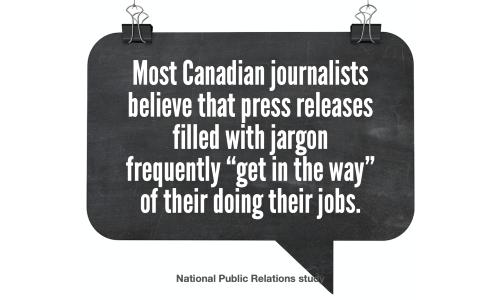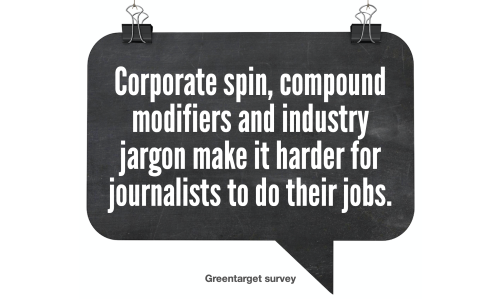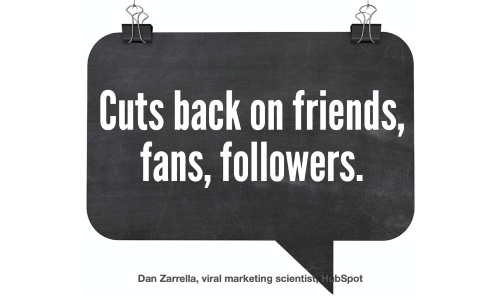Technical terminology hurts SEO, social, PR
Why avoid jargon? Because jargon is a barrier to communication.

Jargon:
1. Makes your website harder to find and use.
When it comes to medical terms, readers don’t know what communicators are talking about, according to T. J. and Sandar Larkin.
We say “hemorrhage”; they say “bleeding.” We say “sutures”; they say “stitches.” We say “metastasize”; they say, “the cancer is spreading.”
Searchers use the “wrong” medical term 59% of the time when researching health issues on the web, according to a study by Alexa T. McCray, et al. In fact, more than three-quarters of Americans didn’t know that “hemorrhage” meant “bleeding,” according to a study by E.B. Learner, et al. More than one-third didn’t know that a fractured bone was broken.
Readers don’t search for medical terms |
|
| Instead of … | … they’ll use |
| Multiple myeloma | Blood cancer |
| Diabetes | Sugar diabetes |
| Myocardial infarction | Heart attack |
Whether you’re in the medical, money-management or mobile home business, translate your industry’s language into your reader’s language. If you want to reach your readers with SEO, use the words in your readers’ heads, not the words in your head.
2. Reduces media coverage.
Jargon also makes it harder for the media to use your PR materials. Most Canadian journalists, for instance, believe that press releases filled with jargon frequently “get in the way” of their doing their jobs, according to a study by National Public Relations.

U.S. journalists agree, according to a study by Greentarget. Corporate spin, compound modifiers and industry jargon make it harder for them to do their jobs, they say.

But don’t take their word for it. The Washington Post columnist Gene Weingarten’s not crazy about jargon, either. He writes:
“That’s exactly how these releases read, only they are less scintillating and more crammed with jargon. One word never suffices when 16 can do the job; big, important-sounding words are better than small, clear ones.
“Plans are ‘initiatives.’ They are not begun; they are ‘implemented.’ These releases could sedate an enraged rhinoceros.
3. Cuts back on friends, fans and followers.
Facebook users don’t like jargon and buzzwords, according to viral marketing scientist Dan Zarrella. Using data from HubSpot’s Facebook Grader, Zarrella found that while the average Facebook page has 624 fans, those that use corporate buzzwords have fewer followers.

Don’t repel friends, fans and followers: Write social media postings in the language of those you wish to reach.
_____
Sources: “What the Media Want,” National Public Relations, 2001
Gene Weingarten, “Read It and Lacrimate,” The Washington Post, May 20, 2007
T.J. Larkin and Sandar Larkin, “Health on the Web: Finding the Right Word,” Larkin Page, #33, March 2006
Alexa T. McCray, Russell F. Loane, Allen C. Browne and Anantha K. Bangalore; “Terminology Issues in User Access to Web-based Medical Information,” Proceedings of the AMIA Symposium, 1999, p. 107-111
Timothy B. Patrick, Harpreet K. Monga, MaryEllen C. Sievert, Joan ton Hall and Daniel R. Longo; “Evaluation of Controlled Vocabulary Resources for Development of a Consumer Entry Vocabulary for Diabetes,” Journal of Medical Internet Research, vol. 3, no. 3, 2001
E.B. Lerner, D.V. Jehle, D.M. Janicke and R.M. Moscati; “Medical Communication: Do our Patients Understand?” American Journal of Emergency Medicine, vol. 18, no. 7, November 2000, p. 764-766
Qing T. Zeng and Tony Tse, “Exploring and Developing Consumer Health Vocabularies,” Journal of the American Medical Informatics Association, vol. 13, no. 1, Jan/Feb 2006, p. 24-29.




